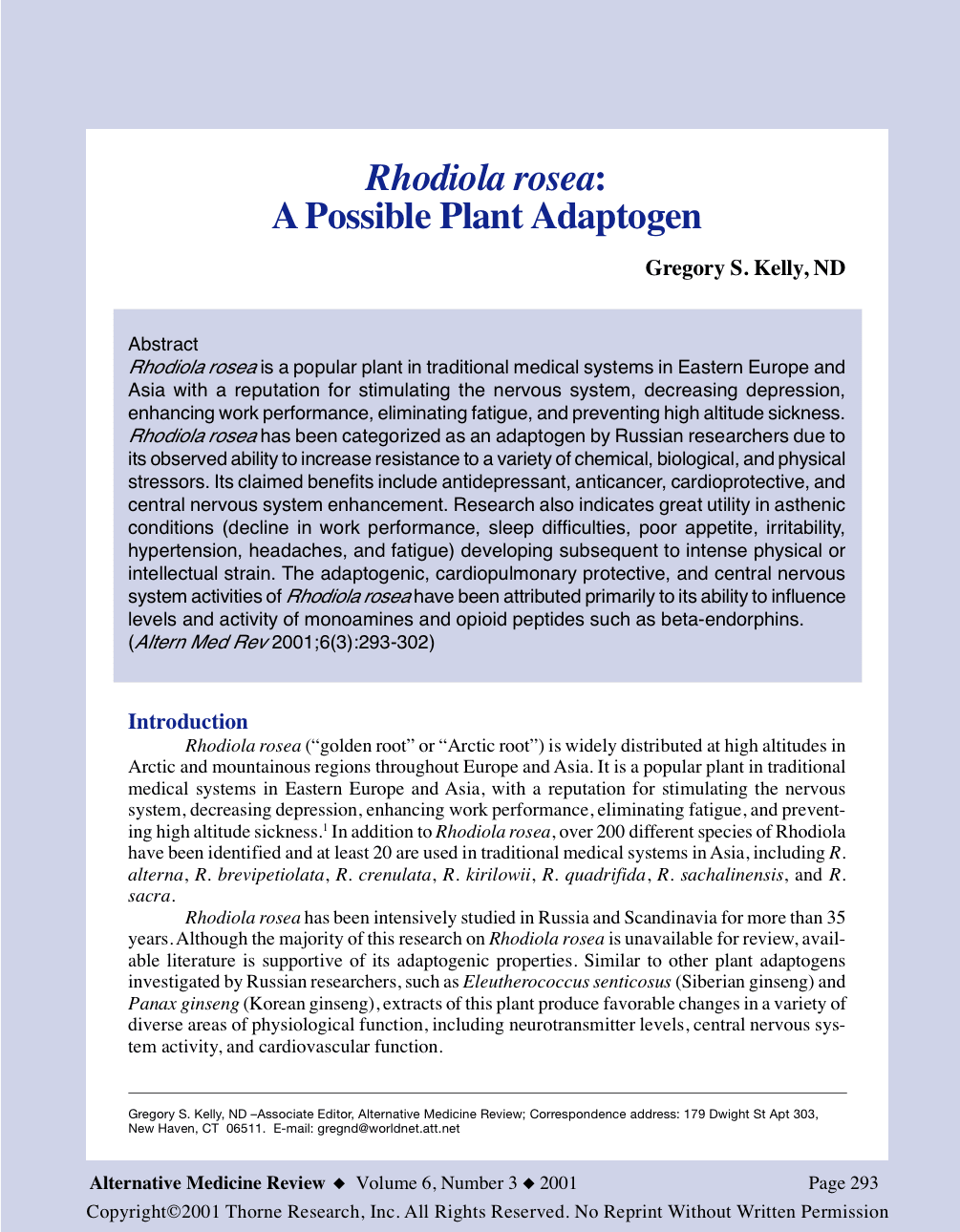Abstract
Rhodiola rosea is a popular plant in traditional medical systems in Eastern Europe and Asia with a reputation for stimulating the nervous system, decreasing depression, enhancing work performance, eliminating fatigue, and preventing high altitude sickness. Rhodiola rosea has been categorized as an adaptogen by Russian researchers due to its observed ability to increase resistance to a variety of chemical, biological, and physical stressors. Its claimed benefits include antidepressant, anticancer, cardioprotective, and central nervous system enhancement. Research also indicates great utility in asthenic conditions (decline in work performance, sleep difficulties, poor appetite, irritability, hypertension, headaches, and fatigue) developing subsequent to intense physical or intellectual strain. The adaptogenic, cardiopulmonary protective, and central nervous system activities of Rhodiola rosea have been attributed primarily to its ability to influence levels and activity of monoamines and opioid peptides such as beta-endorphins. (Altern Med Rev 2001;6(3):293-302)

